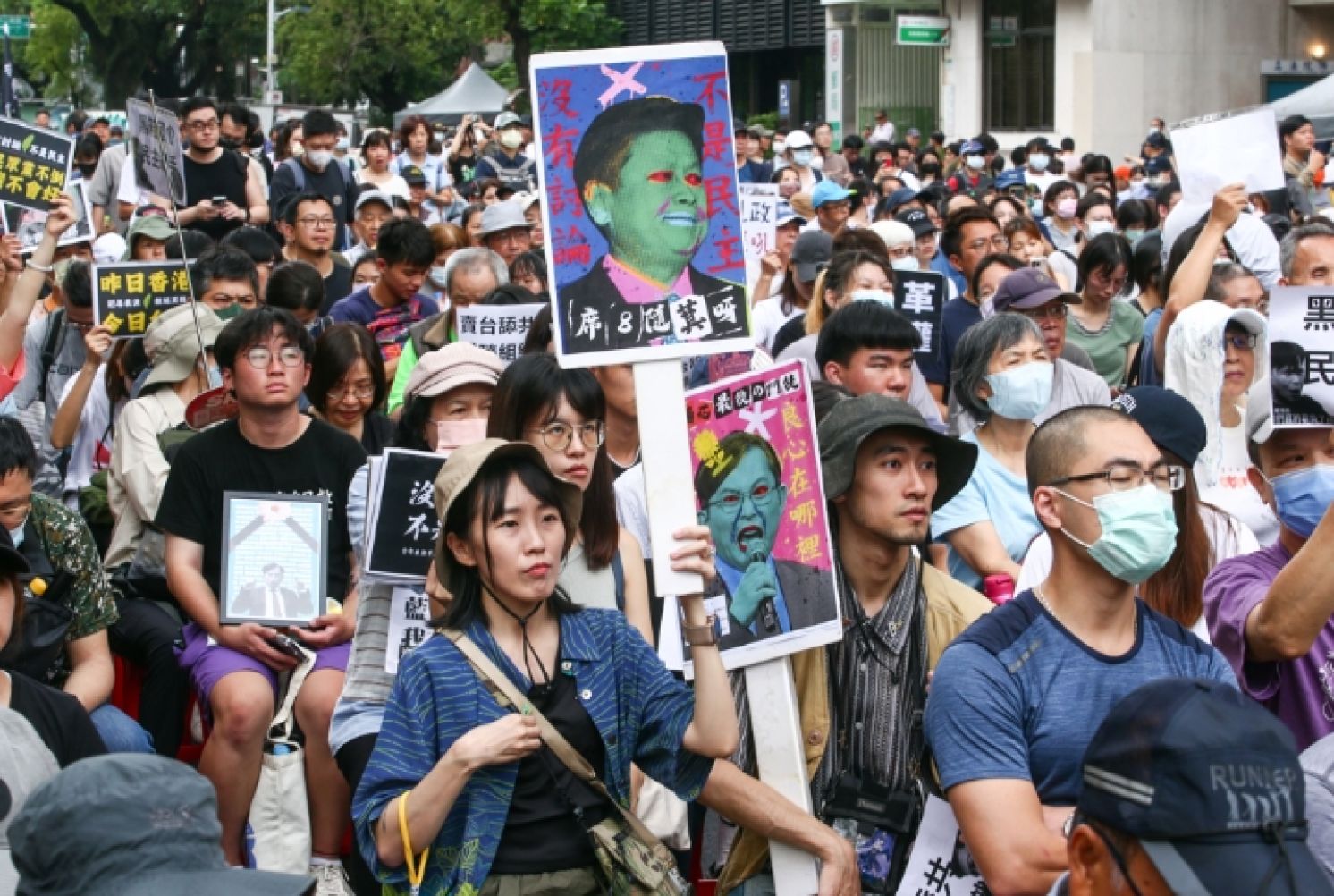
From Dual Minority President to Double-Loss President
By Su Ho
China Times, May 24, 2024
To oppose the bills on legislative reform, the Democratic Progressive Party (DPP) not only staged a physical altercation in the Legislative Yuan recently but also mobilized various civic groups for a rally at the legislature. Additionally, the DPP enlisted two former directors of the American Institute in Taiwan (AIT) among other "international scholars" to criticize the bill as "unconstitutional." Overnight, it seemed as if Taiwan had regressed to the pre-democratic era, with legislative reforms reliant on mobilizing citizens and foreign nationals for protests.
During the pre-democratic period, under the shadow of Article 100 of the Criminal Code, the DPP sought international support to pressure the government, often requiring the assistance of foreign friends. A famous example is Linda Gail Arrigo, former wife of Shih Ming-teh. In 1978, when rumors spread that the government planned to arrest Shih, he quickly married Arrigo at the U.S. consulate, leveraging his status as a "spouse of an American" to seek help from the United States and international human rights organizations. He later humorously referred to this as "marrying a foreigner for protection."
People in Taiwan will not forget Arrigo's contributions to the democracy movement. However, today, Taiwan has been a democracy for many years, and the DPP has been in power for three consecutive terms. Does parliamentary procedure still require foreign guidance? The international scholars invited by the DPP positioned themselves as Taiwan's constitutional judges, declaring the five parliamentary reform bills "unconstitutional." If the roles were reversed, and Taiwanese scholars advised the U.S. Congress on legal reforms, would Americans accept it? Or would they find it highly inappropriate?
Former AIT directors Douglas Paal and Stephen Young, along with several scholars, recently issued a joint statement expressing concern over the parliamentary reform proposals put forth by the opposition parties. This move seemed to subtly imply to the Taiwanese public that the United States opposed the reforms, reminiscent of leveraging American influence. However, pro-Taiwan U.S. Congressman Chris Smith later issued a statement pointing out that one of President Lai Ching-te’s challenges is dealing with radical elements of the DPP disrupting the Legislative Yuan. He also stated that the parliamentary reform bill is indicative of a mature and prosperous democracy. This indicates that views within the United States regarding Taiwan's parliamentary reform are not uniformly negative. Moreover, as this is a domestic issue for Taiwan, the opinions of foreign entities are less significant than Taiwanese public opinion.
In his inaugural address, President Lai emphasized the principle of "the majority respects the minority, and the minority obeys the majority." Consequently, the DPP is now employing delay tactics to obstruct legislative proceedings, causing the five parliamentary reform bills to move forward at a slow but steady pace. President Lai faces a dilemma: while having a paralyzed legislature right after taking office does not bode well, if the DPP itself does not respect the law, they risk losing the respect of the Taiwanese society in the future.
The DPP’s current strategy involves using legislative conflicts to build public sentiment, mobilizing crowds to shape public opinion, and subsequently encouraging the constitutional court to declare the parliamentary reform bills unconstitutional. However, the latest poll from the Taiwanese Public Opinion Foundation, released May 24, shows that 58 percent support legislating the “Contempt of Parliament Act,” while 29 percent do not. This suggests that the crowds gathered around the Legislative Yuan may not represent the majority opinion.
With President Lai securing 40 percent of the vote and leveraging the resources of the DPP, mobilizing supporters around the Legislative Yuan is not a daunting task. However, replicating the success of the "Sunflower Movement" is questionable. This time, the DPP's opposition includes not only the KMT but also the Taiwan People's Party (TPP), whose leader Ko Wen-je enjoys significant support among the youth, rivaling that of the DPP. Consequently, the DPP can no longer dominate the discourse among young voters.
Earlier this year, voters reduced the DPP to a "double minority" governing party. Now, with 58 percent of the public supporting the enactment of a "Contempt of Parliament Act," the message is clear: The electorate rejects the DPP's continued arrogance in governance. Will President Lai, only a few days into his presidency, really choose to clash with public opinion? Moreover, with the KMT and TPP united, the DPP faces a political battle in the Legislative Yuan that is destined for defeat. If President Lai insists on maintaining his stubborn nature in a political landscape where the opposition holds a significant advantage, he is headed toward the dilemma of being a "double-loser president"—losing both legislative votes and public support.
The author is a legislative assistant.
From: https://www.chinatimes.com/opinion/20240524004437-262104